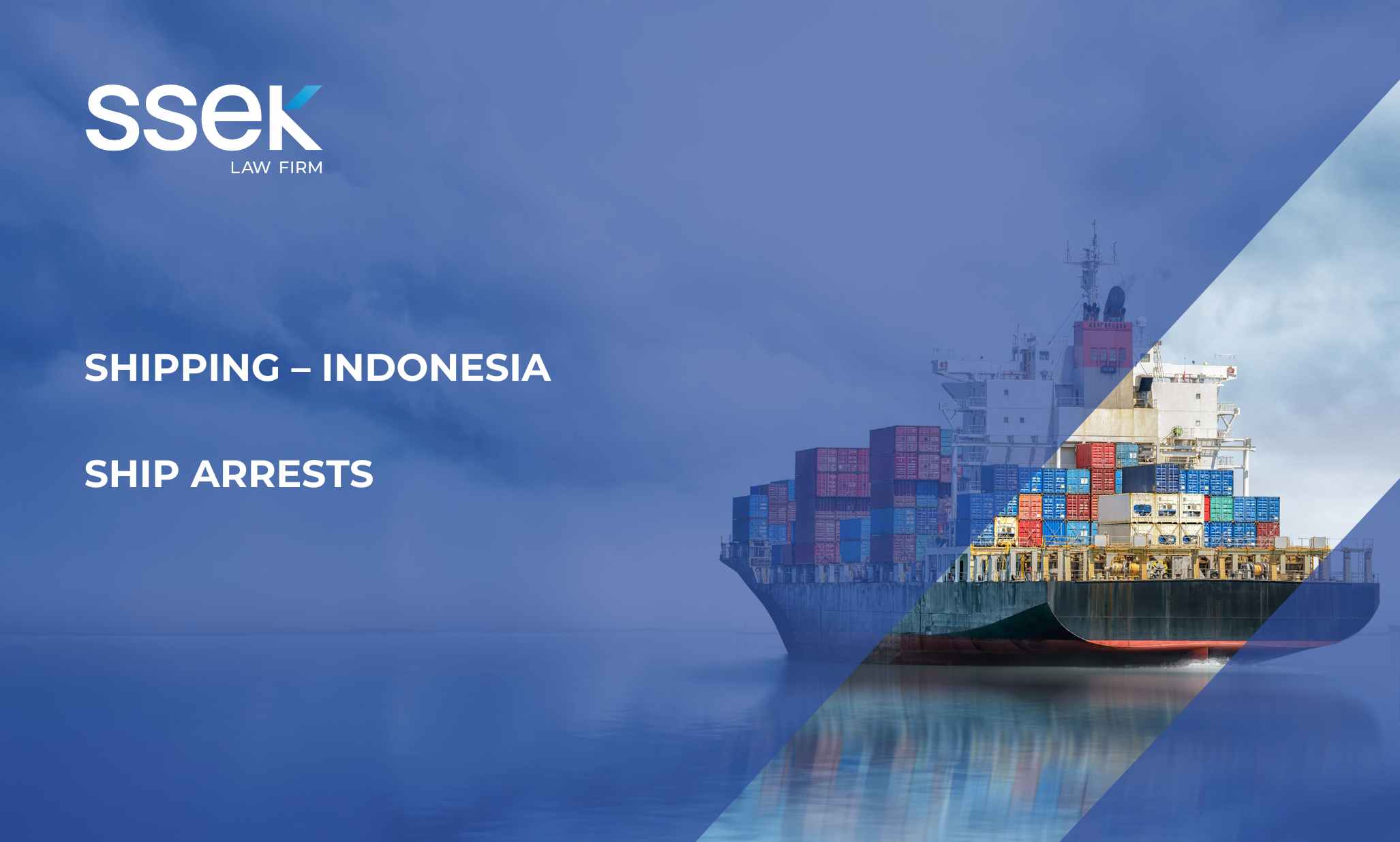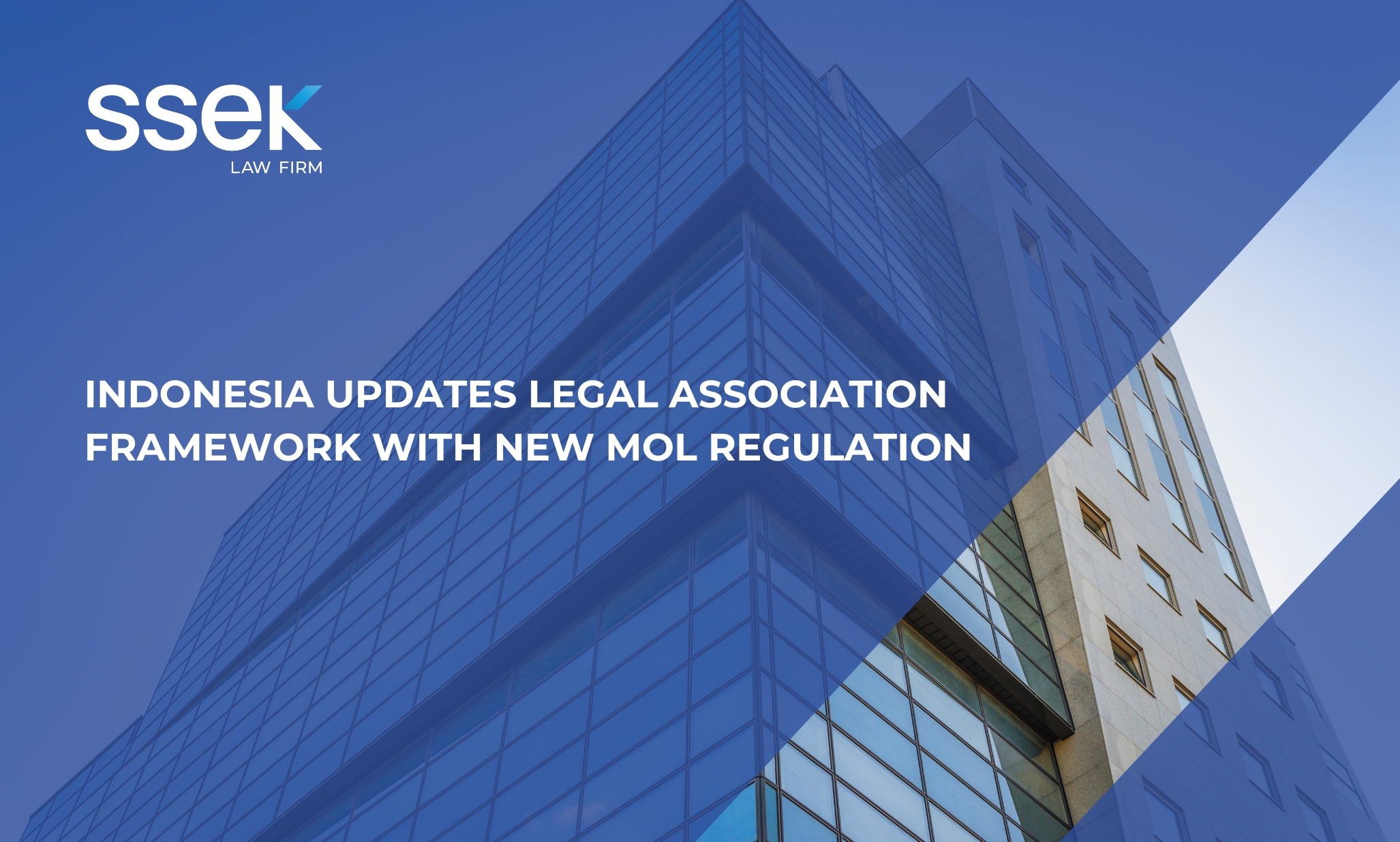


Indonesia is a signatory to the 1999 International Convention on Arrest of Ships, but has not ratified the convention into law, so it is not yet enforceable in Indonesia. Nevertheless, ship arrests are regulated by Law No. 17 of 2008 regarding Shipping, as amended by Law No. 6 of 2023 regarding the Stipulation of Government Regulation in Lieu of Law No 2 of 2022 regarding Job Creation into a Law (the Shipping Law).
Pursuant to Article 222 of the Shipping Law, ship arrests may be carried out by harbormasters after a written court order if the ship is connected to a criminal or civil claim. Article 223 of the Shipping Law provides that the detention of ships in connection with a maritime civil claim may take place in the event of the following:
- loss or damage due to the operation of a ship;
- loss of life or fatal injury that occurs on land or in the water or sea due to the operation of a ship;
- damage to the environment, ship or cargo due to salvage operation activities or an agreement on salvage;
- damage or threat of damage to the environment, coastline or other interests caused by a ship, including costs needed to take measures to prevent damage to the environment, ship or cargo, as well as for the recovery of the environment as a result of the damage caused;
- costs or expenses relating to lifting, removal or repair, or relating to the ship, including costs of rescue of the ship and the ship’s crew;
- costs for the use, operation or rental of a ship as set forth in a charterparty or otherwise;
- transportation costs for cargo or passengers on board a ship, as set forth in a charterparty or otherwise;
- loss or damage to cargo, including trunks/suitcases, transported on board a ship;
- loss and damage to a ship and cargo due to an accident at sea (general average);
- towage costs;
- pilotage costs;
- costs of goods, equipment, ship supplies, fuel oil or bunker, or ship tools, including containers provided for service purposes and ship supplies for the operation, upkeep, rescue or maintenance of the ship;
- costs of construction, reconstruction or reconditioning, repair, alteration or completing ship supplies;
- fees for port, canal, dock, harbor, shipping lane and/or other levies;
- salaries and other payables for a ship’s captain, officers, crew members and others employed on board a ship, including repatriation and social insurance costs for their interests;
- financing or disbursements incurred for the interest of the ship on behalf of the ship’s owner;
- insurance premium (including “mutual insurance call”) for the ship payable by the ship’s owner or charterer without the ship’s crew or bareboat (demise charterer);
- commission, fees, broker or agency fees payable relating to the ship on behalf of the ship’s owner without the ship’s crew (demise charterer);
- costs of a dispute related to the ownership status of the ship;
- costs of a dispute between the co-owners of a ship related to the operation and revenue or mining products of the ship;
- a mortgage fee on a ship or other encumbrance of a similar nature on the ship; and
- costs of a dispute caused by a ship sale agreement.
At the time of writing, there are no implementing ministerial regulations regarding the procedures for the detention or arrest of ships as described above.
Arresting a Vessel
Pursuant to Article 222 of the Shipping Law, the arrest of vessels may be carried out by the harbormaster at the relevant port, pursuant to a court order. As ship arrest may be carried out based on criminal or civil maritime claims, reference must be made to the confiscation of assets within civil or criminal proceedings.
As stated in Article 1(16) of the Indonesian Criminal Procedural Code (KUHAP), the confiscation of assets will be carried out by an investigator, where there will be a seizure of movable or immovable, tangible or intangible assets to be used for evidence in an investigation, prosecution and proceeding.
Article 39 of the KUHAP provides that certain assets may be seized if they are directly used to conduct a crime or to prepare for the same, if they are used to prevent a criminal investigation, or if they are directly related to a crime.
Nevertheless, as described above, Indonesia has not issued any regulations regarding the formalities or procedures for the arrest of a vessel. The law is also silent on the need for security deposits in the context of ship arrests. Furthermore, neither the Indonesian Civil Procedural Law nor Supreme Court decisions have provided any guidelines or requirements for ship arrests. As a result, the authority of the harbormaster or the courts remains unclear.
On the matter of powers of attorney or notarizations, in general, to act on behalf of foreign parties who are located outside Indonesia, the claim petitioner will be required to obtain a power of attorney, which is to be notarized and consularized at a local Indonesian embassy.
Excerpted from the Shipping 2024 Chambers Global Practice Guide, published by Chambers and Partners.
Find Shipping 2024: Indonesia here.
Further reading:
This publication is intended for informational purposes only and does not constitute legal advice. Any reliance on the material contained herein is at the user’s own risk. All SSEK publications are copyrighted and may not be reproduced without the express written consent of SSEK.









